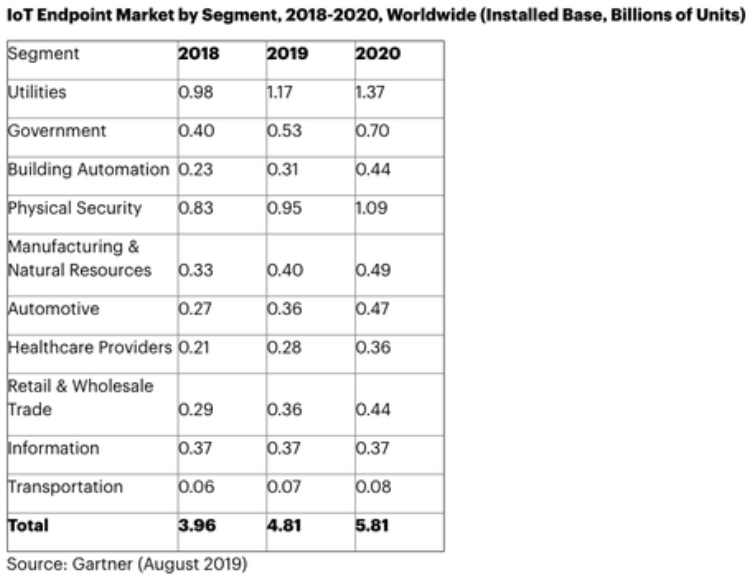Post Views: 862
As of 2021, it is estimated that there are about 4.66 billion people with internet access… Considering the world population is breaching 8 billion, I think this figure is still shockingly low. And with this insufficiency comes opportunities.
More people are now being assimilated by the Great Internet Age at a faster-than-ever pace. Digital technology has connected us, making the world more efficient and convenient to navigate, and in someways… rendered us almost-powerless dependents… If you are in the Western world – or elsewhere in the world if I may presume – it is now almost inconceivable nowadays to go anywhere without a smartphone… and god forbid your battery is at 5% when you are tourist vacationing somewhere…
That’s not all. Everything that we do now, especially anything pertaining to work and/or most tasks purposed to sustain a functioning world, requires us to be connected to and consult the the internet in someways. Even doctors (or at least the good ones who don’t WebMD your symptoms) requires databases and registries to keep track of patient information and uses some form of digital infrastructure connected to the internet to charge patients. Without the internet, we might as be regressed back into the stone ages… The financial markets would stop working. The world would ground to a halt.
Yet 30 years after the introduction of the internet to the masses and notwithstanding the births of many internet giants, such as Amazon, Google, Netflix and many others, there are still many gaps in the world yet to be filled.
Take news for instance… Mainstream news remains highly partial, obstinately sensationalist at the expense of informative, and highly politicized. Additionally, the news cycle has as long of a attention span as a 3 year old’s interest in a new toy… Harken back to any news that captivated your attention over the past 5 years… what was the conclusion of the news event? What happened to the Malaysian airliner that crashed into the ocean for example?! Unless you went out of your way to follow the story, you probably wouldn’t know much because the news cycle stopped covering the event two weeks after it was first reported… On to the next amazingly tragic thing that happened… until coverage is dropped when something else happens.
The news cycle keeps us in a constant state of amnesia and confusion, bewildered, befuddled and bedazzled, sad, outraged, appalled, and happy or bemused, though rarely truly informative…
If only some internet based algorithm would help sort out the disorganized mess that is modern news reporting. aggregate from multiple sources to provide each individual a tailored flow of relevant and informative news with continuity of coverage on issues that we care about….
Yet the world has yet to invent such internet infrastructure…
There are other unmet needs that could be remedied by internet-based infrastructure and products… but no one has thought of them yet… The possibilities remain endless…
This is why I think the internet age is actually just getting started… the creation of digital infrastructure is likely still in its infancy… Yes, we now have Google (or “the google” as the most tech savvy would call it), Facebook, Twitter, Instagram, Baidu, Wechat… etcs. but the potentials of what internet and semiconductor technology could offer us remains largely untapped. Take another instance, as I’ve discussed in an earlier article, decarbonization and switching to greener technology call upon the potential of computer / internet technology… Most people don’t fully appreciate how comprehensive the process is in manufacturing a car… automobiles are fully of intricate computing components acting as sensors, performance booster or enablers and controller. In fact, I’ll go as far as to say that a conventional gasoline based car is in-itself a computer on wheels. The sophistication of computing technology will only proliferate as cars become even more advanced and electrified. In my opinion, another rather unaddressed element of future cars is the incorporation of the internet… I’d imagine that in addition to being souped-up with semiconductor technology, vehicles technology of the future will become more non-localized. Cars will “talk” to each other about traffic, routes, passenger information, weather, regulations… and when called upon, vehicle and infrastructure coordination through the internet will also enable tracking of objects and people by users, such as law-enforcement… These internet-like features would surely make the world more convenient to navigate… and surely enough, we know that internet + digital technology have the potential to achieve these functions…
Internet-of-Things will also usher in unprecedented needs for internet-based infrastructure and products. Your water bottle, shoes, fridge and stove and the lamp, all will become connected to each other and the internet in the future… and you will be able to manage them from your phone or computer… No more wondering “Did I turn off the stove?!!?” 10 minutes after leaving the house… You will be able to check it on your phone or have that app that manages these mundane matters for you. This is not some far-fetched distant in the future phenomenon. Internet-of-Things is already here… though kind of quietly. IDC predicts that by 2025, there will be 41.6 billion IoT devices, with mostly industrial and automotive equipment constituting as the biggest share of the pie, but consumer products such as wearables and smart home appliances are also catching on.

The foundations of this new world will be a digital/internet based architecture created by individual designers and organizations. Much like the birth of Facebook that tapped into the potential of social media and thus unleased the latent demand for humans to socialize with (and compare to) others, the world will need – and reward – new inventors and transformers of digital / internet technology to meet the creative uses of internet in a more interconnected age where the lines separating physical and the digital becomes increasingly blurred.
This is why internet / digital-based creation will still be the biggest money maker… riding on the tailwind transformation into a internet connected world is the fact that only 55% of the world currently has access to the internet. As this number increase in the next several decades, receptiveness and demand for many internet-based products will continue to climb. And unlike physical-based products, digital and internet inventions will generally require minimal physical import. If motivated (and talented enough), all one will need to be the next greatest inventor is a computer and a brain. On your laptop, you could create the next biggest thing that wow the world.
So get to work.


